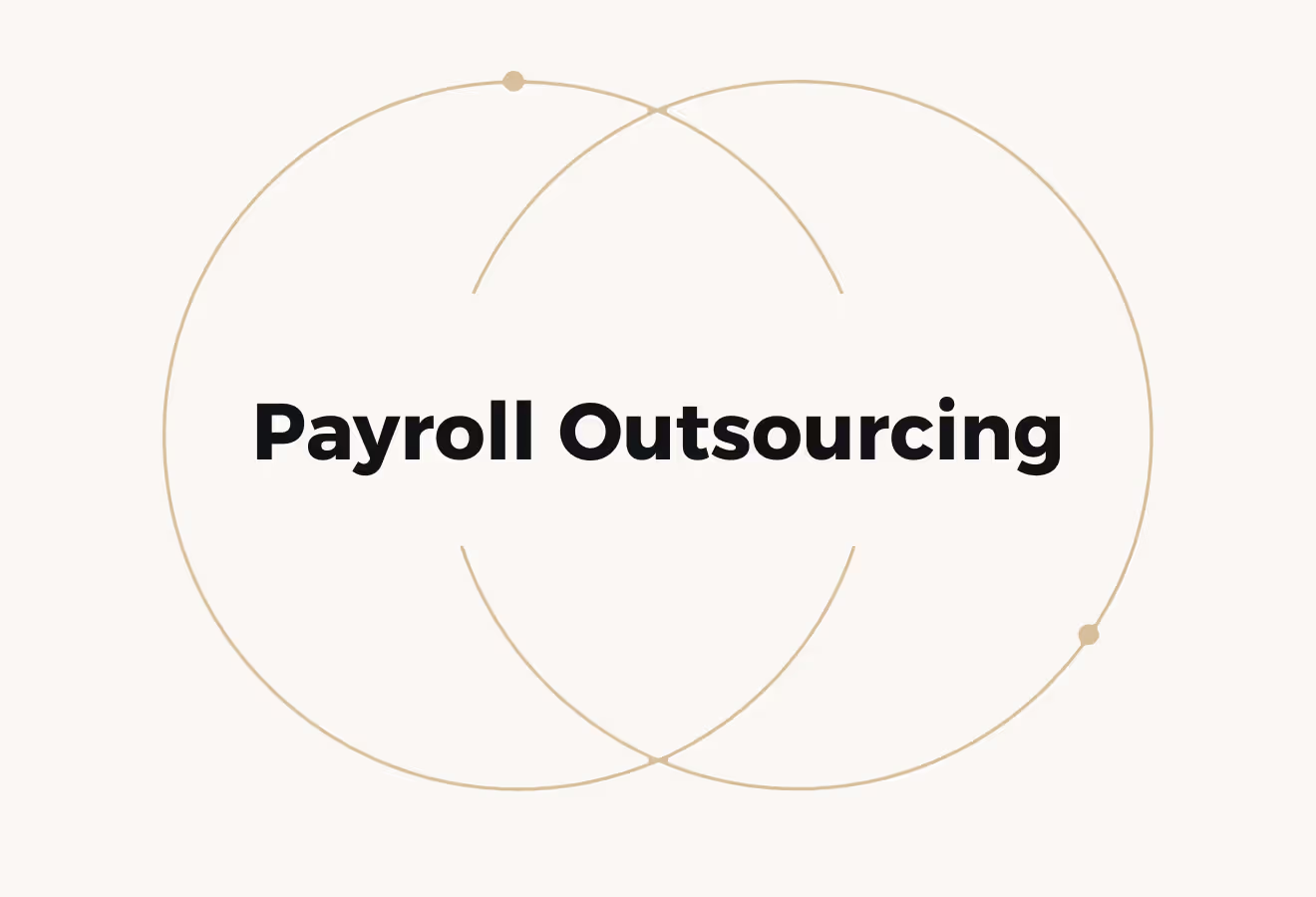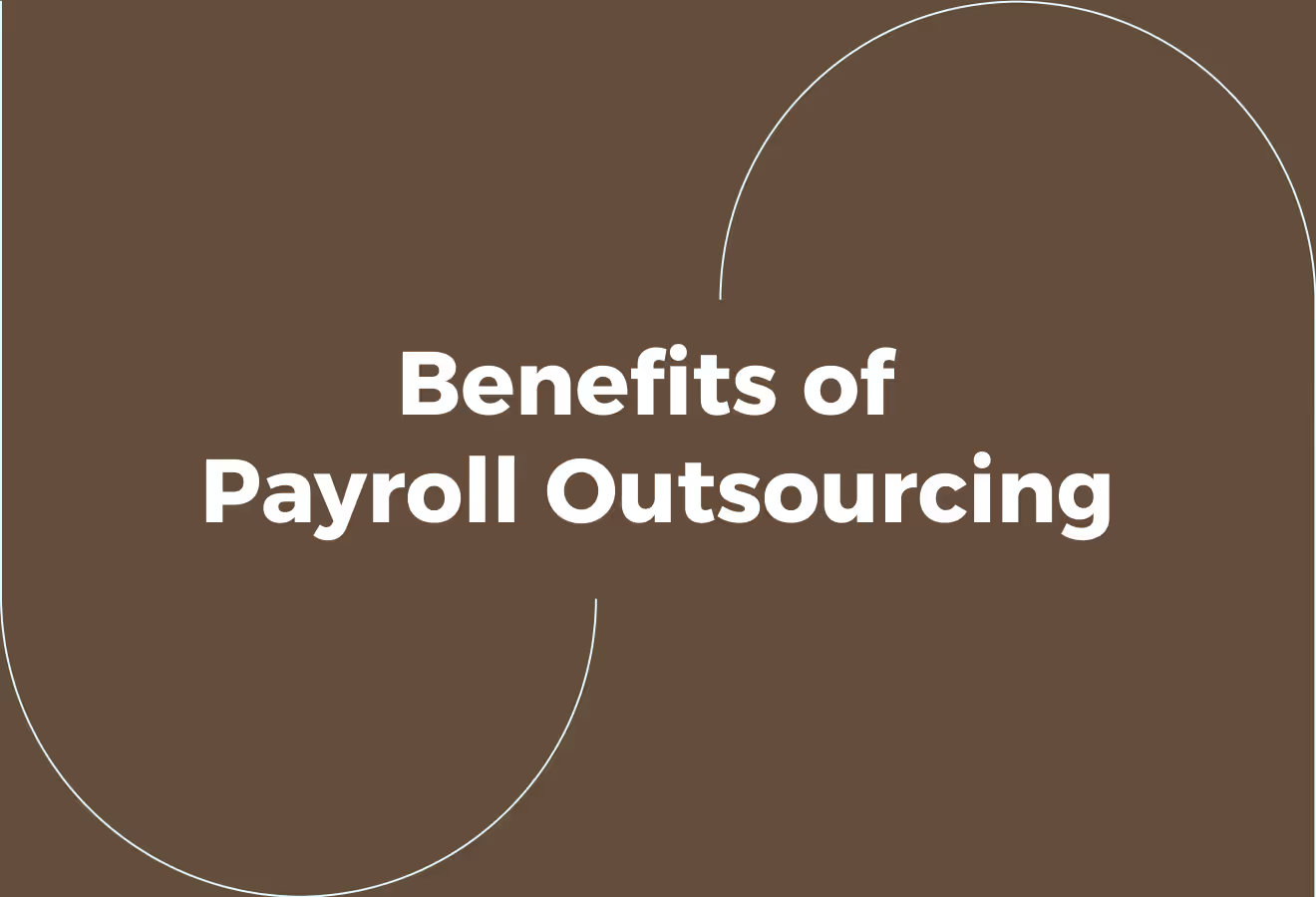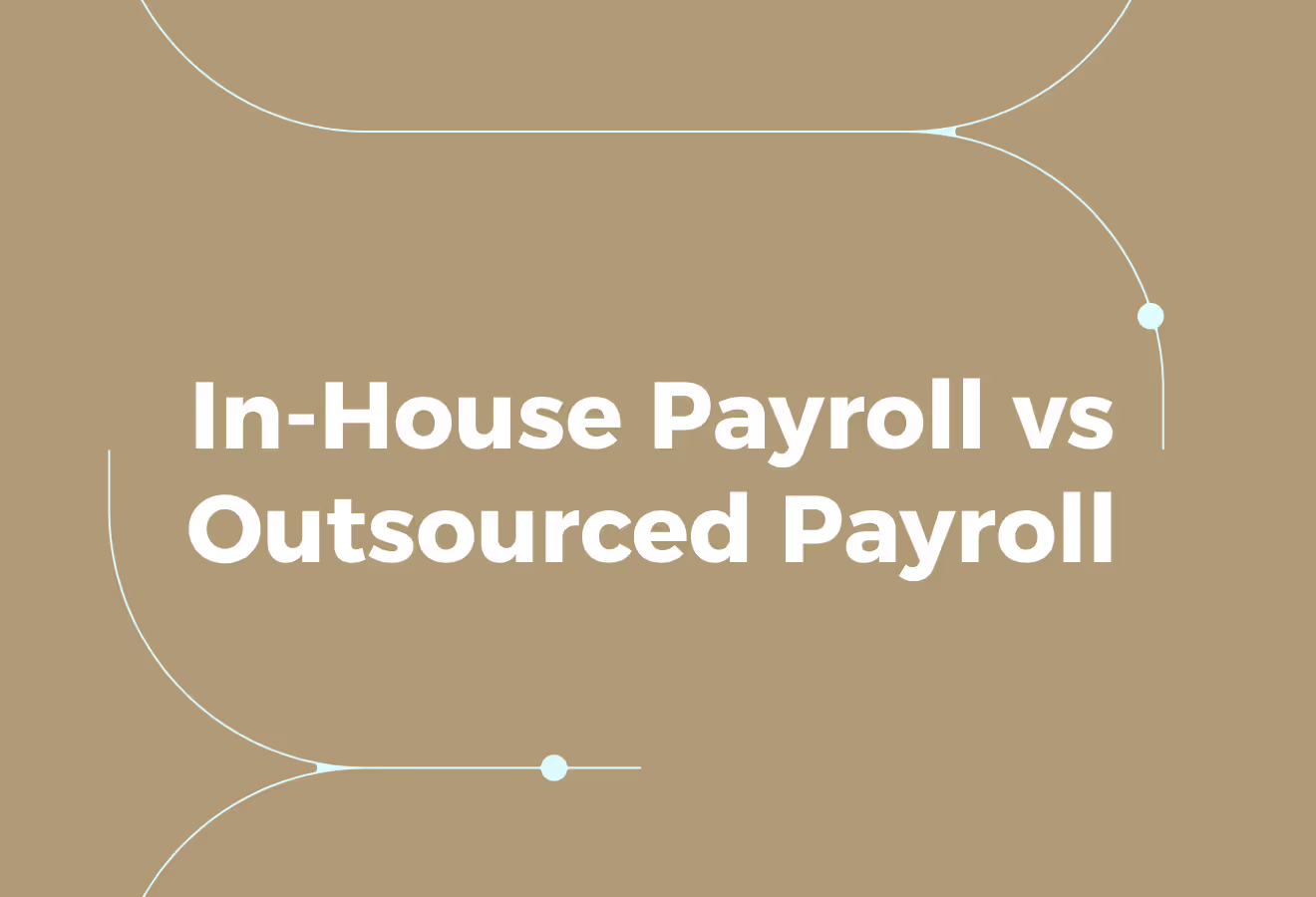9 Benefits of Payroll Outsourcing for Businesses

9 Benefits of Payroll Outsourcing for Businesses
Automation can eliminate long Friday nights spent on spreadsheets and tax-related tasks by automating repetitive tasks and streamlining payroll processing. Outsourcing payroll frees HR to focus on hiring and culture while reducing costs, lowering payroll errors, ensuring compliance, and accelerating tax submissions as you scale. Modern solutions highlight how the automation of payrolls plays a central role in making outsourcing more efficient, reliable, and cost-effective. Want to learn about the key benefits of payroll outsourcing for your business? Read on for clear, practical guidance.
Cercli's global HR system combines payroll processing, compliance support, and employee records, enabling you to achieve time savings, enhanced data security, and simplified payroll management without requiring additional staff. It helps you compare payroll providers, speed up tax filing, and scale payroll across countries with less risk.
9 Benefits of Payroll Outsourcing for Businesses

1. Cutting Payroll Errors
Payroll errors erode profit and trust. Simple miscalculations, wrong tax codes, and missed deductions trigger employee complaints, regulatory audits, and fines.
To reduce payroll errors and improve payroll accuracy, specialist payroll services use:
- Automated payroll software
- Reconciliations
- Quality control checks
What would fewer mistakes mean for your payroll management and staff confidence?
2. Freeing HR from Payday Tasks
Processing payroll is a time-consuming task, especially for global payroll with multiple contract types and tax jurisdictions.
Outsourced payroll and payroll automation remove repetitive tasks from HR, letting teams focus on:
- Talent management
- Employee engagement
- Benefits administration
Where would your HR team spend the hours saved by outsourcing payroll processing?
3. Seamless New Starter Onboarding
A smooth first pay shapes a new starter's view of your organisation. Payroll providers streamline onboarding by collecting starter data, applying correct tax codes, and enrolling staff in benefits through integrated payroll systems.
That reduces the administrative load on HR and speeds staff integration; how might faster onboarding affect early retention?
4. Making Payroll Compliance Easier
Payroll administration demands up-to-date knowledge of tax compliance, statutory reporting, and employment legislation across jurisdictions.
To lower legal and financial risk, outsourced payroll providers maintain:
- Current tax tables
- File statutory returns
- Support audits
Who in your organisation keeps track of frequent changes to tax and payroll rules?
5. The Economics of Outsourced Payroll
Running payroll in-house means licences for:
- Payroll software
- IT upkeep
- Training
- Internal controls
- Salaries of payroll staff
Outsourced payroll often converts those fixed costs into a predictable service fee, reducing capital outlay.
Could moving payroll management to an external provider reduce your total cost of ownership?
6. How Payroll Affects Morale
Employees expect consistent, on-time pay and clear payslips. Payroll services with automated payment runs, self-service portals, and rapid query handling minimise late payments and payroll complaints.
When staff receive reliable pay, trust in leadership rises; how many payroll queries does your team handle each month?
7. Focus on Business Growth
Outsourcing payroll administration frees senior managers to focus their resources on strategy, product development, sales, and customer service, rather than on transactional tasks. Delegating payroll processing to a specialist preserves internal capacity for business priorities.
Where should your leaders be spending their time to drive growth?
8. Payroll Data Security
Payroll data contains sensitive personal information that requires strong protection. Reputable payroll providers invest in encryption, access controls, secure backups, and compliance with data protection regulations, such as the GDPR, to reduce the risk of breaches.
How confident are you in your current payroll data security measures?
9. Payroll Data and Reporting
Outsourced payroll enhances record-keeping and generates detailed payroll reports for:
- Budgeting
- Audits
- Performance reviews
Accurate data feeds into:
- Tax filings
- Benefits administration
- Workforce planning
- Supports audit trails for compliance
Would clearer payroll reports change how you forecast labour costs?
Related Reading
- Why Outsource Payroll Processing Services
- Employee Payroll Management
- What Is Payroll Management in HR
- What Is the Payroll Tax Rate
- How Much Does Payroll Processing Cost
The Growing Case for Payroll Outsourcing

Payroll outsourcing means contracting an external provider to handle all or part of payroll administration.
That includes:
- Gross-to-net salary calculations
- Tax deductions
- Provident fund contributions
- Social security contributions
- Professional tax
- Other statutory obligations
It also covers payslip generation and the ongoing task of keeping payroll processes aligned with changing labour laws and compliance requirements.
Why Payroll is Getting More Complex
As organisations grow, payroll transitions from straightforward pay runs to a complex web of rules and exceptions. New benefit plans, tax rule changes, varying statutory contributions, and tighter reporting windows increase the burden on HR and finance teams.
One-third of small businesses report spending more than six hours a month on payroll processing, time taken away from staff who have other responsibilities. How would you redeploy that time?
Not Just A Solution For Large Companies
Outsourcing was once primarily associated with large corporations, but its adoption has since broadened. Between 2015 and 2019, the proportion of businesses using outsourced payroll services rose from 17 per cent to 38 per cent, indicating an uptake across the market and among smaller employers.
For SMEs, outsourcing can be more affordable than hiring a full-time payroll expert while still giving access to experienced payroll management.
Efficiency, Cost And Compliance As Practical Drivers
Organisations choose outsourced payroll for predictable benefits:
- Reduced admin time
- Lower overheads for payroll software and training
- Improved payroll accuracy
- Fewer compliance failures
Outsourcing also helps scale payroll operations quickly as headcount changes and supports consistent payroll processing during growth or reorganisation. What would your team do with the time saved?
How Outsourcing Reduces Errors And Compliance Risk
Specialist providers maintain up-to-date knowledge of statutory filings and payroll tax rules and tend to use payroll controls that reduce computational and processing errors. That reduces the chance of penalties and of employee dissatisfaction caused by incorrect payslips or late payments.
Ask potential providers how they handle compliance updates, audit trails, and rectification of payroll errors.
Market Figures Supporting Outsourcing
The global payroll outsourcing market is projected to grow by $6.15 billion by 2025, signalling continued demand for outsourcing services. The shift from 17 per cent to 38 per cent of businesses using outsourced payroll between 2015 and 2019 underlines broader adoption across company sizes.
Do these numbers align with the pressures you see in your organisation?
Questions To Ask Before You Outsource Payroll
- Which statutory jurisdictions do you cover, and how do you keep up with regulatory change?
- Can the provider process multicurrency payroll and support payments to contractors and employees across multiple countries?
- What service levels, security standards, and reporting options are included, and how will payroll integrate with your HR systems and timekeeping?
These questions reveal whether a provider will reduce risk and simplify payroll administration.
How Cercli Supports Workforce Compliance and Growth
Cercli helps companies in the Middle East need a flexible, compliant, and reliable way to manage their workforce, whether teams are local, remote, or spread across multiple countries.
As companies increasingly hire remote employees,contractors, and global teams, Cercli provides support for global workforce management and gives HR teams a central platform through a global HR system
Related Reading
- How Does Payroll Processing Work
- AI in Payroll Processing
- Payroll Automation Benefits
- Payroll Tax vs Income Tax
In-House Payroll vs Outsourced Payroll

Compare the two primary approaches to payroll management and determine which one best fits your team's needs:
- Size
- Budget
- Risk tolerance
Running payroll in-house keeps everything inside your organisation and gives you direct control over:
- Processes
- Data
- Timing
Outsourcing shifts core payroll tasks to a specialist provider that handles pay runs, tax filing, and often payroll reporting on your behalf. Which matters more to you right now: control over every detail or reducing internal effort and exposure to error?
Control and Customisation: Benefits Of In-House Payroll
If you require precise control over sensitive salary data and access levels, in-house payroll provides that. You decide who can view salaries, benefits, and bonuses, and you set payroll schedules so you can run off-cycle or emergency payrolls when required. Integration with your HR and timekeeping systems becomes simpler when everything sits inside the same IT environment.
You can choose payroll software that matches your:
- Processes and customise payslip layout
- Deduction rules
- Approval workflows
Staffing a payroll clerk or manager lets you shape internal rules and respond quickly to policy or tax rule changes.
Time and Cost Efficiencies From In-House Automation
Automating pay runs, deductions, and tax calculations inside your systems reduces manual work and speeds up each pay period. Where your HR system supports payroll calculations, you avoid transfer friction and retain direct control over payment timing and payslip distribution.
For small to medium-sized organisations, the recurring cost of a single payroll clerk can be lower than the ongoing per-payroll slip or per-employee charges from external providers, especially when payroll volumes are consistent.
Resource Demands and Hidden Costs of Running Payroll In-House
Payroll requires ongoing attention.
To protect staff data, you must invest in:
- Staff training
- System integration
- Software updates
- Cybersecurity
Covering annual leave and sickness creates staffing overhead. Systems require regular maintenance, reconciliation, and supplies for any physical pay slips or payment processes. If your payroll volumes grow or seasonal peaks occur, you need capacity to scale or to hire temporary help.
Experience And Compliance Requirements For Internal Teams
Payroll calculations, payment scheduling, and compliance require knowledge and routine checks. A single inexperienced payroll clerk can make mistakes that cost the organisation money and create regulatory exposure.
You must build capacity for payroll audits, year-end processes, and changes in tax law so payroll remains accurate and on time.
Why Outsource Payroll: Benefits of Payroll Outsourcing
Outsourcing can reduce internal workload and speed up payroll administration. A specialist payroll provider manages payroll processing, tax filing, and payslip distribution, allowing your team to spend less time on routine tasks. That frees managers to focus on core activities.
Outsourcing often requires minimal upfront investment compared with building internal systems and hiring extra staff. Providers typically offer payroll software, automated payroll runs, and payroll reporting as part of the service.
Access to Payroll Expertise and Compliance Support
A provider brings experience across multiple clients and keeps up with regulatory changes. They can reduce:
- Payroll errors
- Handle payroll reconciliation
- Prepare payroll audits
You can select specific functions to outsource, such as:
- Payroll tax filing
- Direct deposit setup
- Producing payslips
Many providers include guarantees that cover the cost of mistakes, which reduces the financial risk for your organisation.
Scalability, Speed And Operational Resilience
When your headcount rises or falls, an external provider can scale processing capacity without the need for recruitment or retraining. Switching providers is often easier than rebuilding internal systems if needs change.
Outsourcing supports faster payroll delivery through automated processing and established procedures for:
- Tax payments
- Year-end reporting
- Payroll reporting
Which payroll outsourcing benefits matter most to you? Think about cost savings, time savings, improved accuracy and compliance, and stronger data security when you compare suppliers.
Considerations and Risks: Challenges of Outsourcing Payroll
Cost Structure And Long-Term Expense
Outsourcing can be economical, but per-pay slip and per-employee fees add up as you scale. For huge organisations with thousands of employees, internal payroll may prove more cost-effective.
Run the numbers on service fees, setup costs, and any migration expenses before making a decision.
Loss Of Direct Control and Dependency On The Provider
Handing payroll to an external supplier requires trust. You will need to share sensitive staff data and depend on the provider for timely payments. Direct edits and real-time oversight may be limited compared with in-house control.
Provider stability matters because their failure would disrupt your payroll operations.
Communication, Data Accuracy, and Service Level Expectations
You remain responsible for the accuracy of the data you supply to the provider. Errors in timesheets or employee records can delay payments and trigger penalties. Clear service level agreements and defined communication channels reduce the chance of misunderstandings.
Insist on:
- Detailed payroll reporting
- Defined turnaround times
- Roles for data reconciliation
Security And Compliance Checks When You Outsource
Treat provider security and regulatory compliance as procurement priorities.
Confirm how the provider handles:
- Payroll data security
- Backups
- Access controls
Check what indemnities or guarantees exist for payroll mistakes and how payroll audits are supported. These checks protect your employees and your organisation from fines and reputational harm.
Considerations for Outsourcing Payroll

Scope of Service: What Should Your Payroll Partner Handle For You?
Start by deciding the level of service you need:
- Do you want calculation of taxes and deductions only, or complete payroll administration that covers tax filing, deduction management, wage distribution, and benefits administration?
- Will you need payroll for staff in multiple countries with different payroll rules and social security systems?
Select providers whose payroll processing covers your current needs and can scale as headcount grows or you enter new markets.
Ask about customer support and whether the team will act as an extension of your HR function when issues arise. Which tasks do you want to keep in-house and which will you hand over to the provider?
Data Protection And Security: How Will Employee Data Be Kept Safe?
Payroll contains the most sensitive employee records, including bank details and national identifiers.
- Encryption standards
- Access controls
- Data residency
- Incident response procedures
Check for independent security certifications and audit reports, such as ISO 27001 or SOC 2, and inquire about the frequency of penetration tests and vulnerability scans.
Safeguarding Payroll Data: Access and Transmission
Confirm who can access payroll data, how third-party sub-processors are vetted, and what insurance covers breach liability. Also, check how they transmit files to banks and tax authorities and whether they use secure APIs or file transfer protocols.
Which safeguards will prevent unauthorised access or accidental disclosure of staff data?
Local Compliance: Will They Keep You Compliant Across Jurisdictions?
Laws regarding payroll taxes, statutory contributions, and reporting vary by country and are subject to frequent changes. For multinational payroll, ask whether the provider has local tax and payroll specialists in each jurisdiction, how they track legislative changes, and what their compliance record looks like for other clients.
Does their payroll software include built-in compliance controls and tools for interpreting legislation to reduce the risk of errors? How deep is their knowledge of your specific industry and the employment rules that apply to your workforce?
Visibility Over Performance Metrics: Can You See What Matters?
Payroll is a process with many moving parts. You need transparency on payment timeliness, error rates, reconciliation status, and compliance incidents.
Evaluate the reporting interface and whether the management reporting dashboard gives clear KPIs, such as:
- On-time payments
- Payroll accuracy
- Cost per payslip
- Exceptions per pay cycle
Ask if the provider offers:
- Employee self-service so staff can view payslips
- Update personal data
- Reduce admin queries
What reporting cadence and escalation paths will you get when a deviation occurs?
HRIS Integration: Will Their Technology Plug Into Yours?
Integration prevents duplicate data entry and reduces payroll processing errors.
Confirm whether the provider can integrate with your existing HRIS via an API or pre-built connectors, and how they handle:
- Data mapping
- Validation
- Error reporting
If their software is not compatible, ask how much effort a migration would require and who manages it. Also check whether integration supports real-time updates for hires, leavers, and pay changes, and how payroll and HR data remain synchronised during pay runs. Who will manage the integration, and what testing and fallbacks are in place if integration fails?
Book a Demonstration to Speak with Our Team about Our Global HR System
Cercli helps companies in the Middle East manage their workforce, whether local or spread across more than 150 countries, using a single system. Run fully compliant payroll across the UAE, Saudi Arabia, and the wider MENA region while you onboard staff, manage leave, track assets, and pay global contractors in multiple currencies.
HR teams gain centralised access to employee records, statutory filings, payslips, and payroll reconciliation, so manual spreadsheets and split systems become unnecessary. Would you like to see how this looks for your company?
Automation and Accuracy: The Benefits of Payroll Outsourcing
Outsourcing payroll through Cercli reduces processing time and reduces administrative costs by removing repetitive tasks. You get automated payslips, on-demand payroll reporting, and payroll analytics that spotlight trends like:
- Overtime
- Payroll tax liabilities
- Cash flow needs
Accuracy improves because automated calculations handle:
- Complex pay rules
- Statutory deductions
- Multi-currency conversions
That lowers the risk of payroll errors, late payments, and penalties while freeing HR to focus on strategy and employee experience. Which payroll pain point would you solve first?
Compliance and Local Expertise that Reduces Risk
Cercli embeds local labour law knowledge for the UAE, Saudi Arabia, and other MENA countries, ensuring statutory filings, payroll tax filings, and social contributions remain in scope.
The platform tracks:
- Eligibility rules
- Leave entitlements
- End of service calculations
- Country-specific reporting needs
Built-in audit trails and reconciliation tools enable faster audits and reduce regulatory exposure. Do you require assistance with specific statutory filings or audit readiness?
Cloud Automation, Integrations, and Employee Self-service
Cercli integrates with HRIS systems, time and attendance records, and finance through APIs to streamline data flow and eliminate duplicate entries.
Employees get secure self-service access for:
- Payslips
- Leave requests
- Personal data updates
It lowers HR queries and improves confidentiality. Payroll runs include batch reconciliation, bank file generation, and contractor payments in local currencies, supporting flexible payment cycles. How would tighter integration change your monthly close?
Scale, Security, and Measurable Cost Savings
Whether you manage 25 employees or scale to 500+ across multiple markets, Cercli scales with you. Centralised payroll processing and role-based access reduce internal fraud risk and strengthen data security.
Outsourcing payroll reduces overhead, lowers error-driven rework, and improves cash flow management by consolidating payroll tax payments and supplier payouts.
The result:
- Predictable payroll costs
- Fewer compliance fines
- Faster payroll cycles
Ready to book a demo and walk through a live payroll run?
Related Reading
- Payroll Management Software Features
- How Is Payroll Tax Calculated
- Employee Payroll Automation Software
- Best Payroll Software for Small Businesses
- How to Do Payroll for a Small Business










